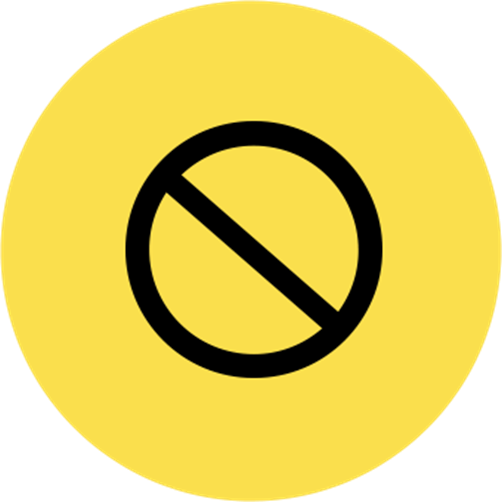What Are Synthetic Drugs & New Psychoactive Substances?
Also known as: Synthetic drugs | Bath salts | Flakka | Gravel | Alpha-PVP | NBOMes | Plantfood | MDPV | Monkey Dust | Mephedrone | Synthetic Cocaine
Want to know more?
What are new psychoactive substances?
What are they?
New psychoactive substances (NPS) are a range of drugs that have been designed to mimic established illicit drugs, such as cannabis, cocaine, ecstasy and LSD.
A psychoactive substance means any substance that, when consumed by a person, has the capacity to induce a psychoactive effect on the person.
Where do new psychoactive substances come from?
Until the change in the law in 2015 which prohibits new psychoactive substances in Western Australia, manufacturers of these drugs regularly developed new chemicals to replace those that were banned.
How are new psychoactive substances used?
New psychoactive substances can come in a range of forms, including: tablet, liquid, powder, crystals, capsules or on blotter tab. They can be swallowed, smoked, injected or snorted.
How many people use new psychoactive substances?
The National Drug Strategy Household Survey 2016 reported that 0.5% of Western Australians aged 14 years and older had used new psychoactive substances in the previous 12 months.
Health effects and risks
Short and long term effects
Little is currently known about the short and long term effects of new psychoactive substances.
Often, the conditions associated with manufacturing illicit drugs means that you won’t know exactly what’s in them, the toxicity of the active substances or if any other chemicals have been added or substituted, which increases the risk of harm occurring.
Even products that appear identical in colour, logo, shape and brand, have been found to contain different ingredients.
As part of the manufacturing process, dangerous by-products of an unknown toxicity can be formed. Compounds used to manufacture the drug can cause them to be converted into other unknown compounds, or drugs of unknown toxicity.
Research to date suggests side effects may include:
- Aggressive behaviour.
- Anxiety.
- Confusion.
- Dehydration and overheating.
- Dizziness and headaches.
- Feelings of excitement or euphoria.
- Increased alertness/arousal.
- Increased energy.
- Insomnia.
- Involuntary jaw clenching and teeth grinding.
- Overdose (especially when EPS are mixed with alcohol or other drugs).
- Psychosis.
- Rapid or irregular heartbeat.
- Stomach pains, nausea and/or vomiting.
- Twitches and tremors.
- Unpleasant after-effects (‘bad comedown’).
- Visual distortions or hallucinations.
- Rhabdomyolysis (muscle meltdown).
New psychoactive substances, pregnancy and breastfeeding
Little is known about the effect of new psychoactive substances during pregnancy and breastfeeding due to the range in types of new psychoactive substances and the fact new chemicals are made all the time.
However, it is known that psychoactive drugs cross the placenta (the barrier between the mother and baby’s blood) so a baby is exposed to the same chemicals as the mother. These chemicals can affect the growth and development of the baby and cause miscarriage, premature birth and birth defects. It is safer not to use and drugs during pregnancy unless under medical supervision.
It is likely that the new substances will reach the baby through the breast milk again exposing the child to the same substance as the mother.
New psychoactive substances and other drugs
One of the major risks associated with new psychoactive substances is that you won’t know what is in them, or the toxicity of the active substances. As part of the manufacturing process, dangerous by-products can also be formed of unknown toxicity. Compounds used to manufacture the drug can cause them to be converted to other unknown compounds of unknown toxicity. This can result in unknowingly mixing drugs and serious side effects.
Impact on your life
New Psychoactive Substance use can impact on your life in many ways. It can lead to relationship, financial and legal problems.
New psychoactive substances and relationship problems
Drug use can lead to social and emotional problems and can affect relationships with family and friends. For example, users may develop paranoid behaviour and become difficult to live with, focus only on drugs and have no time for friends, or argue about money.
New psychoactive substances and financial problems
The cost of purchasing new psychoactive substances can lead to financial problems for both occasional and regular users.
New psychoactive substances and the law
In Western Australia, under the Misuse of Drugs Amendment (Psychoactive Substances) Act 2015, it is illegal to manufacture, sell, supply or promote psychoactive substances.
Offences under this Act carry heavy fines and/or prison sentences. Penalties apply of up to $48,000 or 4 years in jail. A person convicted of a drug offence can receive a criminal record, which can lead to difficulties in getting a job, health insurance, credit and/or visas for overseas travel.
New psychoactive drugs and driving
In Western Australia, it is against the law for anyone to drive impaired by a drug.
Due to wide variety of drug types in the new psychoactive substance group the effects will vary:
- Stimulant drugs can cause exaggerated feelings of confidence giving a false sense of driving ability, which may result in users taking greater risks and increase the risk of having a crash.
- Depressant drugs can greatly impair driving performance.
- Hallucinogens can distort a person’s perception of speed, distances and their visual acuity. These effects can greatly impact on driving ability.

Quitting Options
People decide to quit using new psychoactive substances for a lot of reasons including it is harming their physical and/or mental health and wellbeing, their relationships with friends and others they care about, or because they are starting new employment and may be drug tested.
Thinking about quitting? Worried you may struggle? You are not alone. Help is only a phone call away.
You can call a qualified alcohol and other drug counsellor at the Alcohol and Drug Support Line. The counsellors can assist in planning your quit attempt, and talk with you about the options available to assist you. You can call them 24/7 on (08) 9442 5000 or 1800 198 024 (country callers).



